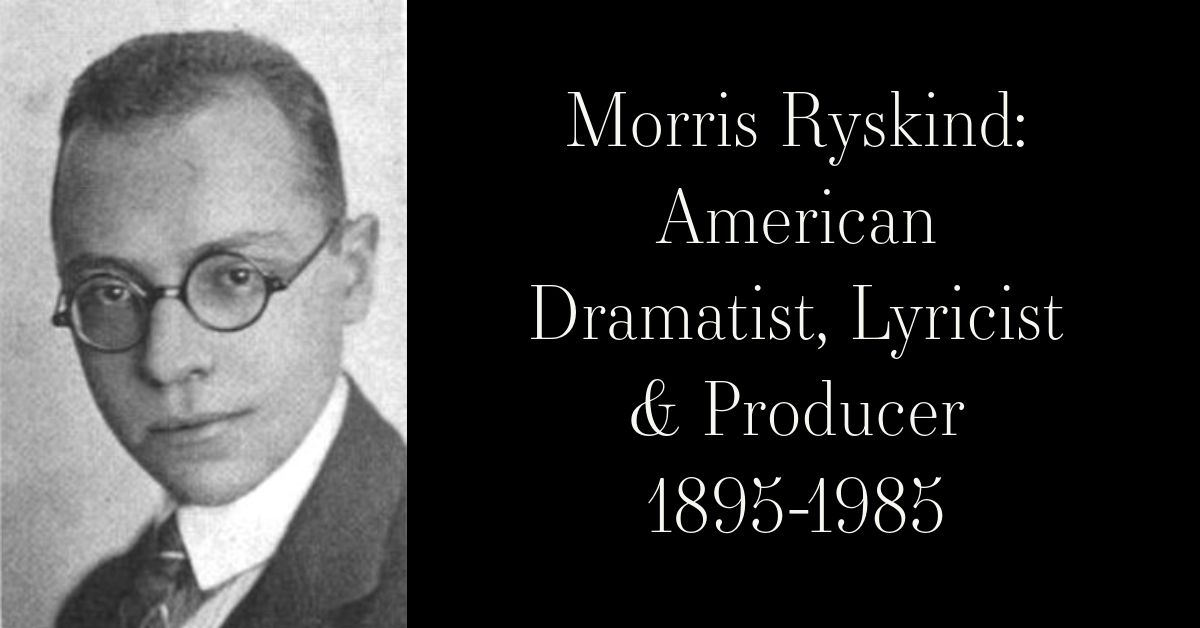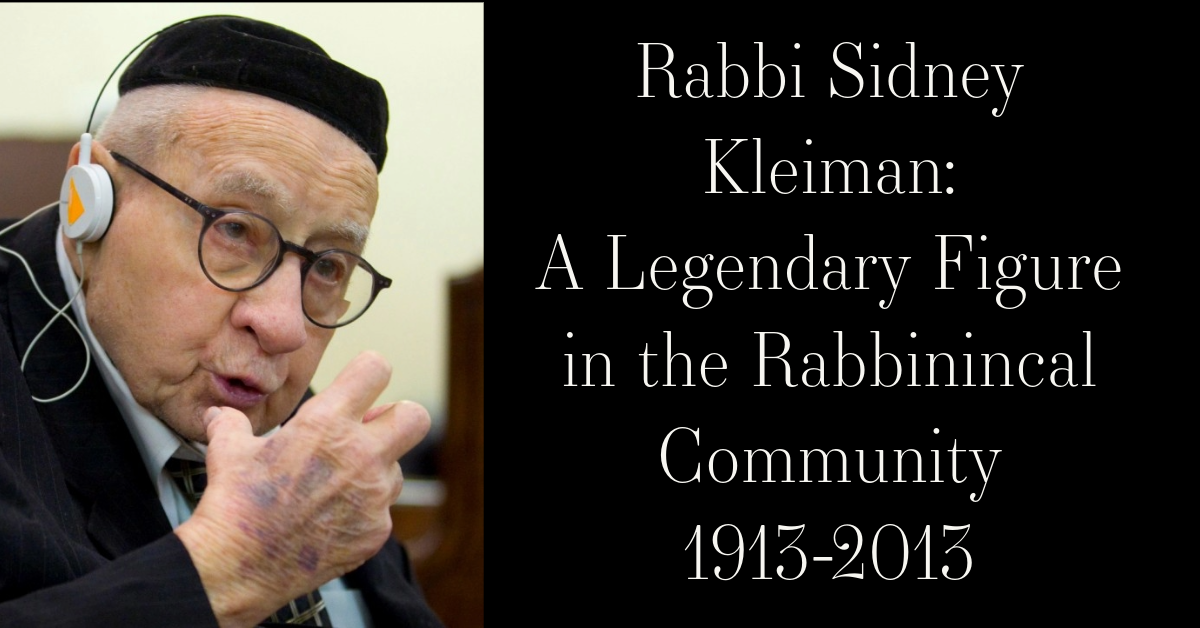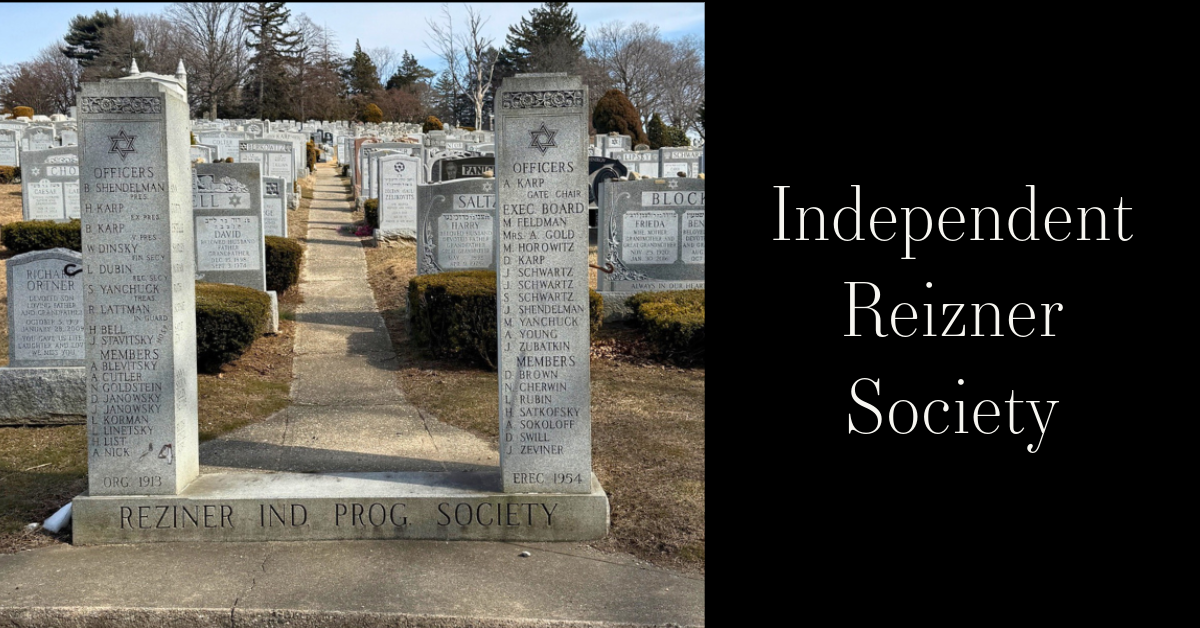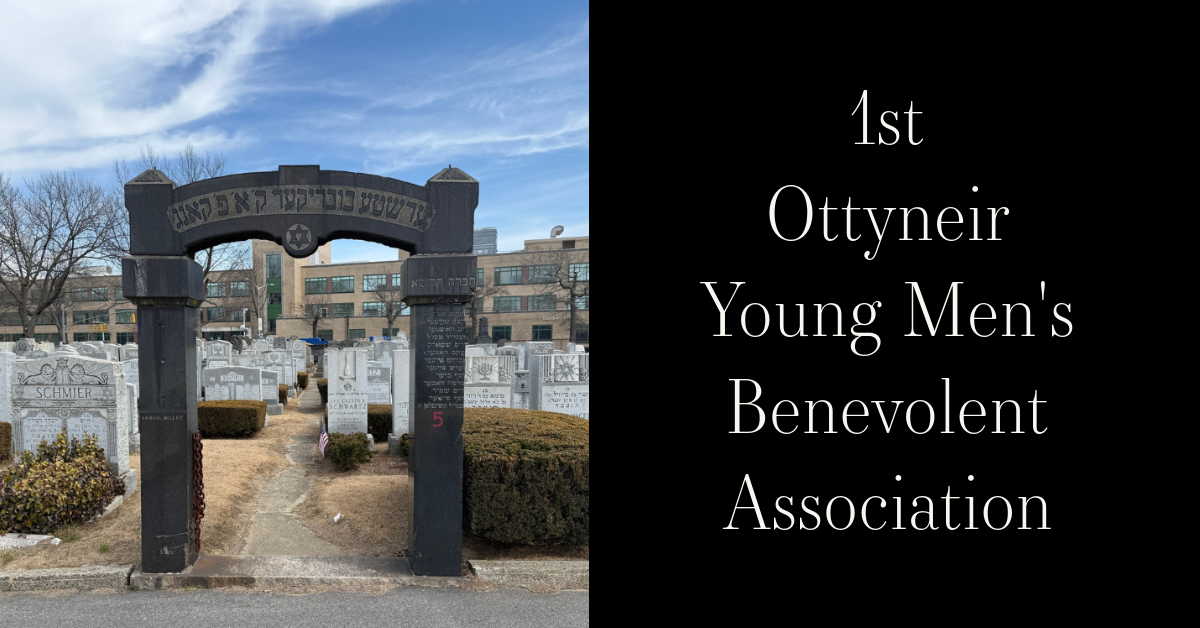Gregory Ratoff

Grigory Vasilyevich Ratner AKA Gregory Ratoff was born in Samara, Russia on April 20, 1897. His parents were Sophie and Benjamin Ratner. They had four children, the eldest of whom was Grigory.
Ratoff had been pursuing a law degree at the University of St. Petersburg before his education was interrupted for 18 months once he was drafted into the Czar's army during World War I during the Bolshevik Revolution. Once the war ended, Ratoff decided to discontinue his law studies in order to pursue acting. He enrolled in the St. Petersburg Dramatic School and Ratoff later joined the Moscow Art Theater, where he began to make a name for himself as an actor.

In 1922, Gregory and his parents fled Russia and moved to Paris. It was here that Gregory first met Evgenia Konstantinova Leontovich (later known as actress Eugenie Leontovich). She was the daughter of a Czarist army officer, who had also escaped to Paris. Eugenie and Gregory were both performing in a Paris production of the Russe Revue in 1922 when Lee Shubert, Producer and founder of the Shubert Theaters, spotted Ratoff during a performance. Shubert brought the Russe Revue and the young couple to Broadway. After Ratoff and Evgenia became engaged, they decided to stay in the United States. They were married on January 19, 1923.
Ratoff joined the thriving Yiddish theater in New York City, producing, directing and acting for the Yiddish Players performing in Yiddish film. He also appeared in Yiddish productions on Broadway. Gregory began appearing in Shubert productions while he was learning English. His thick slavic accented broken English, heavy build and scruffy look became his stock-in-trade in his busy future career as a character actor. For a while, Ratoff became one of 20th Century Fox’s leading directors. After he began working as a director, acting parts became started to dry up for Gregory.
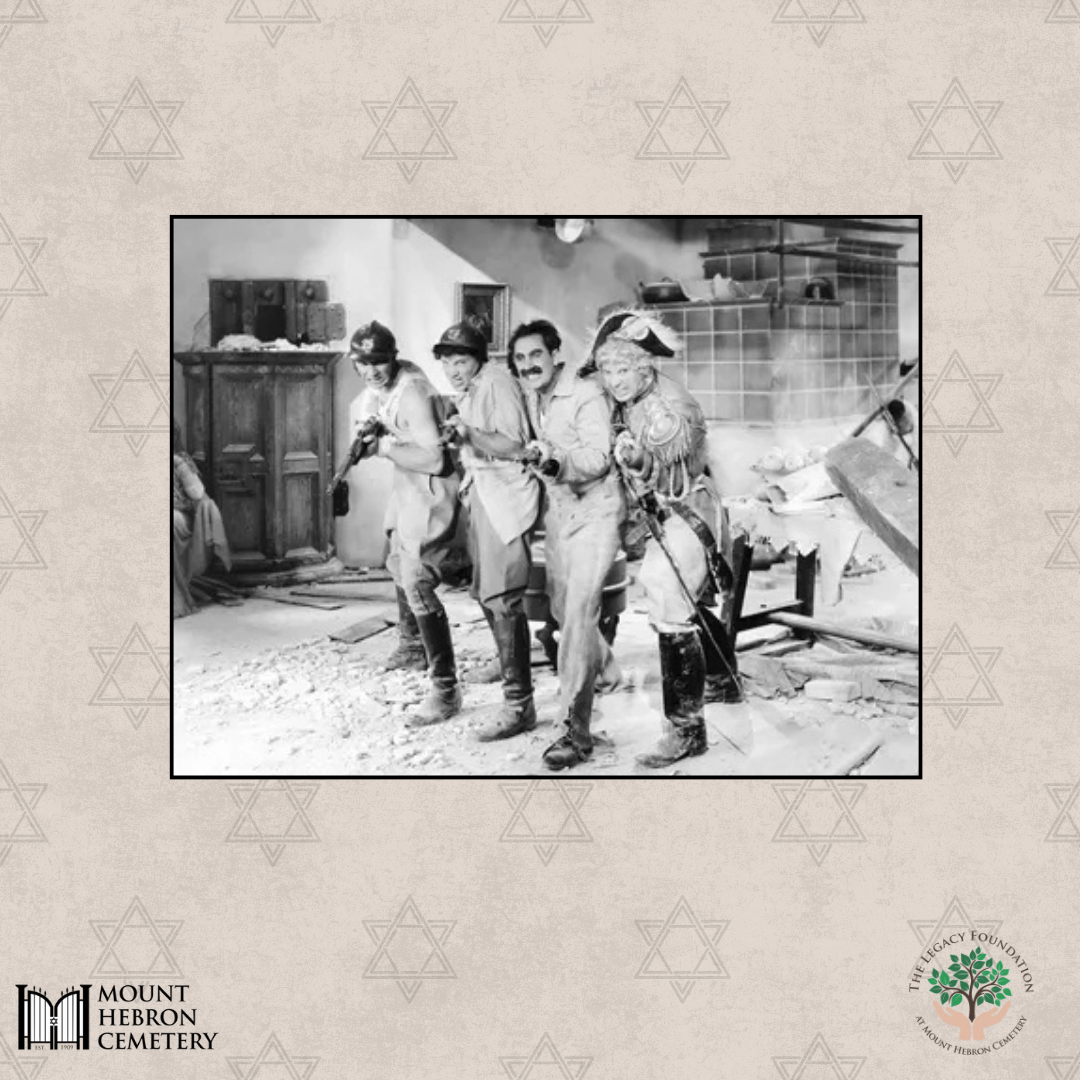
In the course of his career, Ratoff appeared in over 45 film and TV roles. His best-known films include I’m No Angel, Exodus and his most famous role as the producer Max Fabian who feuds with Margo Channing (Betty Davis) in All About Eve.
Gregory was honored with a star on the Hollywood Walk of Fame in the Motion Pictures category. Gregory was one of the two producers to have purchased and developed the original rights to the James Bond franchise from Ian Fleming in 1955.
When the Depression hit Broadway, Ratoff headed to Hollywood. He arrived in 1931 and was cast in Gregory La Cava's Symphony of Six Million. The producer, David O. Selznick had insisted that this Fannie Hurst story of a brilliant Jewish doctor escaping his tenement roots be cast with authentic Yiddish actors from the Lower East Side. Gregory’s role as the beloved immigrant father who dies on an operating table led to five more jobs in quick succession, ranging from a George Kaufman comedy to a prestigious Selznick production, What Price Hollywood? (1932) directed by George Cukor. With these early critical and box-office winners, Ratoff was in constant demand as a character actor throughout the 1930s, many in B-pictures but increasingly with young directors who later had important careers. His role as a comic showbiz caricature was also popular, especially in such films as I'm No Angel (1933), as Mae West's character's lawyer. Due to his large frame and uncertain command of English, he was often typecast as a villain in an American setting or as a foreigner in the dozen of 1930s films that recreated a glamorous fictional Europe on the Hollywood backlot. In Frank Lloyd's Under Two Flags (1936), Ratoff was in the French Foreign Legion. In Howard Hawks' The Road to Glory (1936), Ratoff was a Russian sergeant in World War I France.

In 1936, although Ratoff acted in six films, he first moved behind the camera, co-directing (with Otto Brower) in Sins of Man for Twentieth Century-Fox. Ratoff followed with his first screenwriting effort, Cafe Metropole (1937), and soon directed on his own with Lancer Spy (1937), starring Peter Lorre, Dolores del Río and George Sanders. Ratoff directed five movies by 1939, all under contract for Fox, while still also acting. He directed Intermezzo: A Love Story (1939), when David O. Selznick was loaned Ratoff by Fox to direct his new Swedish protege Ingrid Bergman in her American debut. The original director, William Wyler, had walked out after a quarrel with Selznick. The story was a remake of the Swedish film that had made Bergman a star, a tale of doomed love between a celebrated but married violin virtuoso (Leslie Howard) and his brilliant young piano accompanist (Bergman). Bergman was none too impressed with Ratoff, reportedly because she was struggling with English herself and she found Ratoff difficult to follow. Ratoff, however, saw her as "sensational", as he told Life. Leslie Howard had been talked into the part with the promise of a co-producer credit. Ratoff never reached such heights again, and he never entered the top ranks of Hollywood directors. Ratoff dropped acting and left Fox in 1941 for a Columbia directing contract.

For the next decade, Ratoff directed comedies, musicals, crime dramas, war films, thrillers and swashbucklers. Song of Russia (1944), another love story between musical performers (Robert Taylor and Susan Peters), was set in Russia at the beginning of the Nazi invasion. Ratoff had been lent out for this MGM project because the musical romance had become one of his specialties after his work in Intermezzo. He collapsed near the end of shooting and had to be replaced by another emigre, Hungarian Laszlo Benedek. Taylor was a friendly witness for the House Un-American Activities Committee, and the film's two writers were hauled before the committee, questioned and harassed. Ratoff's directing career in Hollywood never recovered, and he returned to acting, playing his most famous role as the befuddled producer Max Fabian in All About Eve.
He directed a Broadway play The Fifth Season which was a hit. Ratoff was credited with giving many top-name stars their start, including Ann Southern, Ingrid Bergman, Linda Darnell and Susan Hayward.
Ratoff found his remaining opportunities outside of the U.S. The English comedy Abdulla the Great (1955), which he produced, directed, and starred in as a Middle Eastern potentate, became a complete failure. However, his low-budget film of Jo Eisinger's play Oscar Wilde (1960) won nodds for Robert Morley in the title role, while Ralph Richardson was commended for his role as the barrister who destroys Wilde on the witness stand.
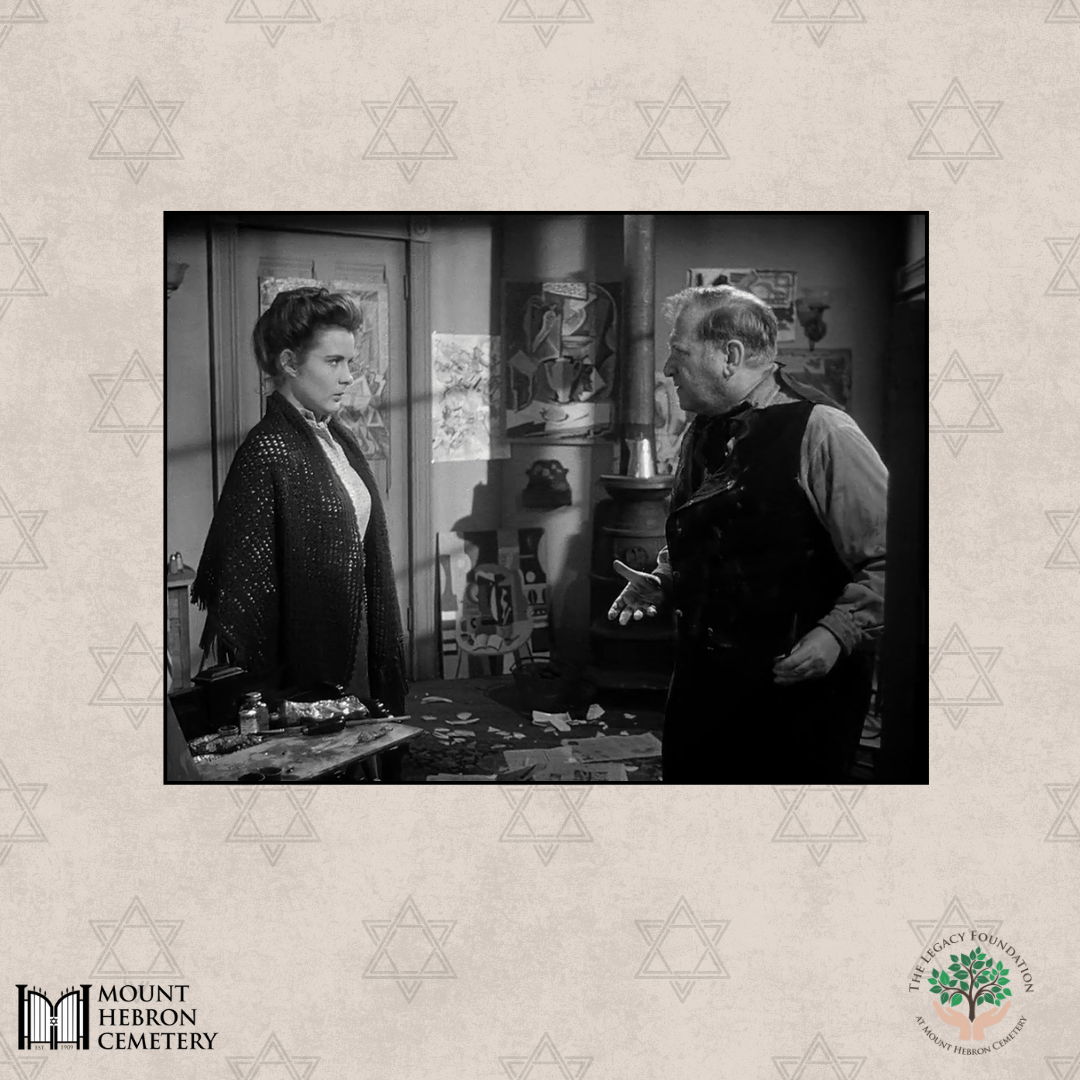
Ratoff was one of the two producers (with Michael Garrison to have purchased and developed the original rights to the James Bond franchise from Ian Fleming in 1955, which subsequently became the subject of a bitter legal dispute. Ratoff considered having Susan Hayward play a female Bond. After his death in 1960, Ratoff’s widow sold the rights to Charles Feldman. Feldman tried to team up with Connery, Broccoli and Saltzman co-producing. When that fell through, Feldman produced Casino Royale on his own.
Ratoff was awarded a star on the Hollywood Walk of Fame in February 1960, just months before his death in Switzerland. One of his last roles as an actor was in the epic film Exodus (1960), for Otto Preminger, a director with whom he had first worked in the early 1930s.
Ratoff had limited success with musicals. However, he continued to work in the genre. Do You Love Me (1946) featured Dick Haymes as a singer. In 1947, Ratoff turned to murder mysteries with Moss Rose (1947) and Cagliostro Black Magic (1949).
Ratoff died on December 14, 1960, in Solothurn, Switzerland from leukemia at aged 67. His body was returned to the United States for burial at Mount Hebron Cemetery, Flushing, New York. Divorced from Leontovich since 1949, he had remarried and was survived by his widow, Maria Ratoff. He was interred under a gravestone marked "Beloved Husband".
Ratoff’s 125th birthday was would have been in the year 2024. When Gregory first arrived in America, he could not speak a word of English. However after learning English Ratoff eventually worked his way from the Yiddish theatre to Broadway and eventually he became a Hollywood talent scout.
Ratoff was a Hollywood fixture on screen, behind the camera, and in Los Angeles society for more than thirty years. This Russian emigre made his screen debut in the David O. Selznick production: Symphony of Six Million (1932). After appearing in a few Selznick movies Ratoff soon became part of David O. Selznick’s inner circle as an actor, director and gambling buddy. When he made the leap to directing, Selznick kept him busy turning out romantic comedies, action pictures, and other lightweight star vehicles.
Two of Gregory’s top quotes in his career: “If you can’t keep quiet, shut up.” and “You’re a parasite for sore eyes.”
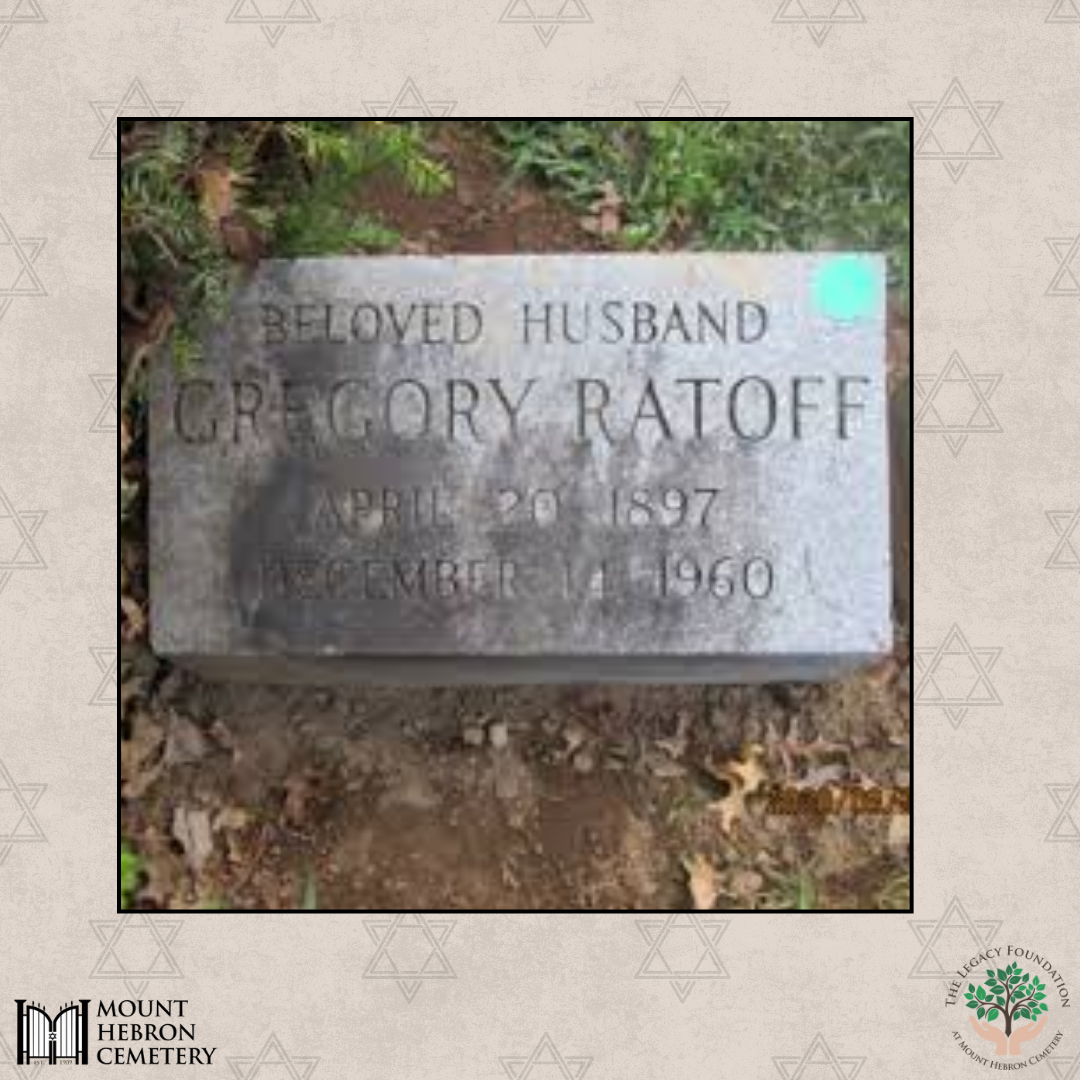
Filmography
Director
Sins of Man (1936)
Lancer Spy (1937)
Wife, Husband and Friend (1939)
Rose of Washington Square (1939)
Hotel for Women (1939)
Intermezzo (1939)
Day-Time Wife (1939)
Barricade (1939)
I Was an Adventuress (1940)
Public Deb No. 1 (1940)
Adam Had Four Sons (1941)
The Corsican Brothers (1941)
The Men in Her Life (1941)
Two Yanks in Trinidad (1942)
Footlight Serenade (1942)
Something to Shout About (1943)
The Heat's On (1943)
Song of Russia (1944)
Irish Eyes Are Smiling (1944)
Where Do We Go from Here? (1945)
Paris Underground (1945)
Do You Love Me (1946)
Carnival in Costa Rica (1947)
Moss Rose (1947)
T That Dangerous Age (1949)
Black Magic (aka Cagliostro) (1949)
My Daughter Joy (1950)
Taxi (1953)
Abdulla the Great (1955)
Oscar Wilde (1960)
Actor
Hello, Sweetheart (1935) — Joseph Lewis
Remember Last Night? (1935) — Faronea
King of Burlesque (1936) — Kolpolpeck
Here Comes Trouble (1936) — Ivan Petroff
Under Two Flags (1936) — Ivan
Symphony of Six Million (1932) — Meyer Klauber
What Price Hollywood? (1932) — Julius Saxe
Skyscraper Souls (1932) — Vinmont
Once in a Lifetime (1932) — Herman Glogauer
Under-Cover Man (1932) — H.L. Martoff
Secrets of the French Police (1932) — Han Moloff
Sweepings (1933) — Abe Ullman
Professional Sweetheart (1933) — Samueload to Glory (1936) — Russian Soldier
Sing, Baby, Sing (1936) — Nicholas K. Alexander
Under Your Spell (1936) — Petroff
Seventh Heaven (1937) — Boul the Cab Driver
Top of the Town (1937) — J.J. Stone
Café Metropole (1937) — Paul
Sally, Irene and Mary (1938) — Baron Alex Zorka
Gateway (1938) — Prince Michael Boris Alexis
The Great Profile (1940) — Boris Mefoofsky
My Daughter Joy (1950) — Marcos
All About Eve (1950) — Max Fabian
O. Henry's Full House (1952) — Behrman (segment "The Last Leaf")
The Moon Is Blue (1953) — Taxi Driver
Die Jungfrau auf dem Dach (1953) — Taxi Fahrer
The Jack Benny Program (1953) — Himself
Abdulla the Great (1955) — Abdulla
The Sun Also Rises (1957) — Count Mippipopolous
Once More, with Feeling! (1960) — Maxwell Archer
Exodus (1960) — Lakavitch
The Big Gamble (1961) — Kaltenberg (final film)
~Blog by Renee Meyers










